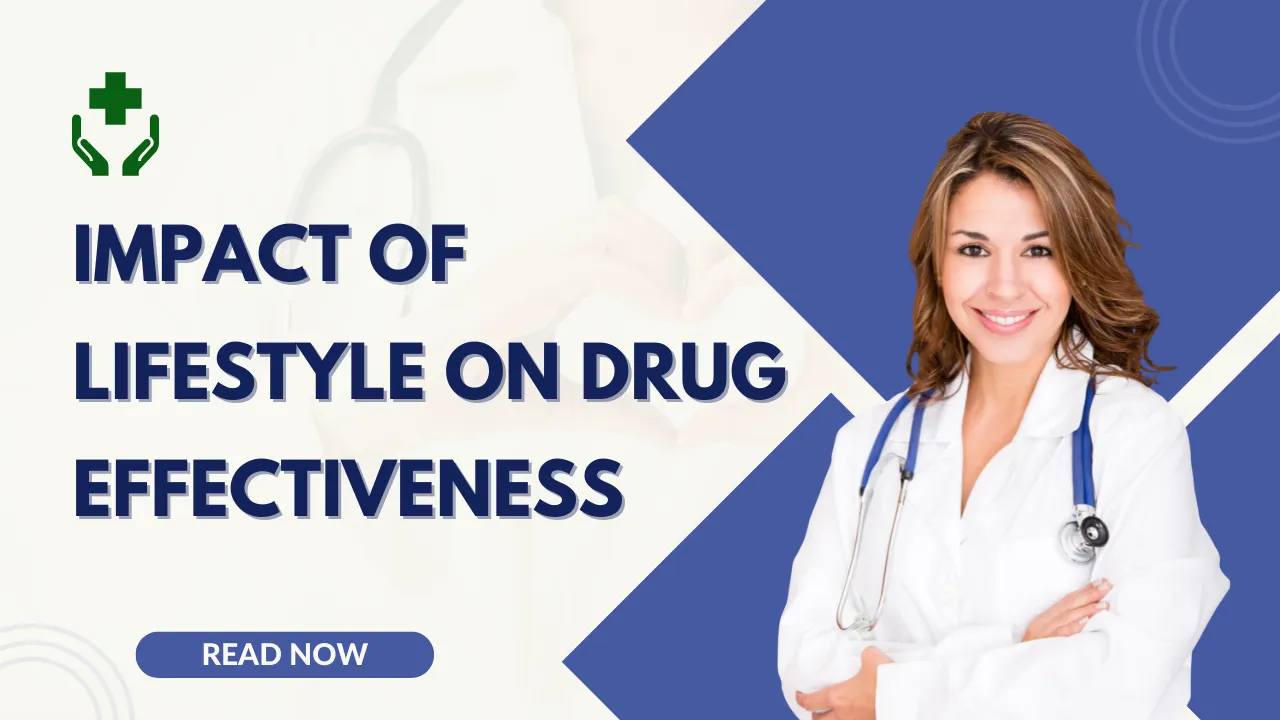Prescription Drug Effectiveness:You’ve probably been told by your doctor to take your medication as prescribed. But did you know that your lifestyle choices can significantly impact how well your medications work? From the food you eat to the amount of sleep you get, your daily habits can influence your body’s response to medication.
Understanding Your Medications
How Medications Work
To understand how lifestyle factors can affect medication effectiveness, it’s important to know how medications work. When you take a pill, it travels through your digestive system and is absorbed into your bloodstream. Once in your bloodstream, the medication is transported to different parts of your body, where it can exert its therapeutic effects.
Factors Affecting Medication Absorption
Several factors can affect how well your body absorbs medication. These factors include:
- Stomach acid: The acidity of your stomach can influence the breakdown and absorption of certain medications.
- Gut motility: The speed at which food moves through your digestive system can also affect medication absorption.
- Liver function: Your liver plays a crucial role in metabolizing drugs. Liver disease or other liver problems can impair drug metabolism and affect medication effectiveness.
The Role of Diet
Nutrient Interactions
Certain nutrients can interact with medications, either enhancing or reducing their effects. For example, grapefruit juice can interfere with the metabolism of many medications, leading to increased blood levels and potential side effects.
Timing Meals and Medication
The timing of meals can also affect medication absorption. Some medications should be taken with food to reduce stomach upset, while others should be taken on an empty stomach for optimal absorption.
Dietary Restrictions and Medications
If you have a specific dietary restriction, such as a gluten allergy or lactose intolerance, it’s important to discuss this with your healthcare provider. Certain medications may contain ingredients that could trigger an allergic reaction or digestive upset.
The Importance of Exercise
Exercise and Drug Metabolism
Exercise can influence how your body processes medication. It can affect the rate at which your body absorbs and metabolizes drugs.
Timing Exercise and Medication
The timing of exercise in relation to medication intake can also be important. In some cases, it may be best to avoid strenuous exercise shortly after taking medication. Consult with your healthcare provider for specific advice.
The Stress Connection
Stress Hormones and Medication
Stress can affect your body’s hormonal balance, which can in turn influence how your medications work. Chronic stress can lead to increased levels of cortisol, a hormone that can interfere with the body’s ability to respond to medication.
Stress Management Techniques
To minimize the impact of stress on medication effectiveness, consider incorporating stress-management techniques into your daily routine. These techniques may include meditation, yoga, deep breathing, or spending time in nature.
The Impact of Sleep
Sleep Deprivation and Medication Effectiveness
Sleep deprivation can impair cognitive function and reduce your body’s ability to respond to medication. When you’re sleep-deprived, your body produces more stress hormones, which can interfere with medication effectiveness.
Creating a Sleep-Conducive Environment
To improve your sleep quality, create a sleep-conducive environment in your bedroom. Keep your room dark, quiet, and cool. Avoid screens before bed, and establish a regular sleep schedule.
Lifestyle Habits to Optimize Medication Effectiveness
Hydration
Staying hydrated is essential for overall health and can also help your body absorb medication effectively. Drink plenty of water throughout the day.
Alcohol Consumption
Excessive alcohol consumption can interfere with the metabolism of many medications. It’s important to limit alcohol intake, especially if you’re taking prescription medications.
Smoking and Drug Interactions
Smoking can also affect how your body processes medication. Nicotine can interact with certain medications, reducing their effectiveness or increasing the risk of side effects.
Consulting Your Healthcare Provider
Open and Honest Communication
To optimize your medication regimen, it’s essential to have an open and honest conversation with your healthcare provider. Discuss your lifestyle habits, including your diet, exercise routine, sleep habits, and any other factors that may affect your medication.
Regular Medication Reviews
Schedule regular medication reviews with your healthcare provider to discuss any changes in your health or lifestyle. Your healthcare provider can adjust your medication regimen as needed to ensure optimal effectiveness and minimize side effects.
By understanding the impact of lifestyle factors on medication effectiveness, you can take steps to optimize your treatment and improve your overall health. Remember to consult with your healthcare provider for personalized advice.

